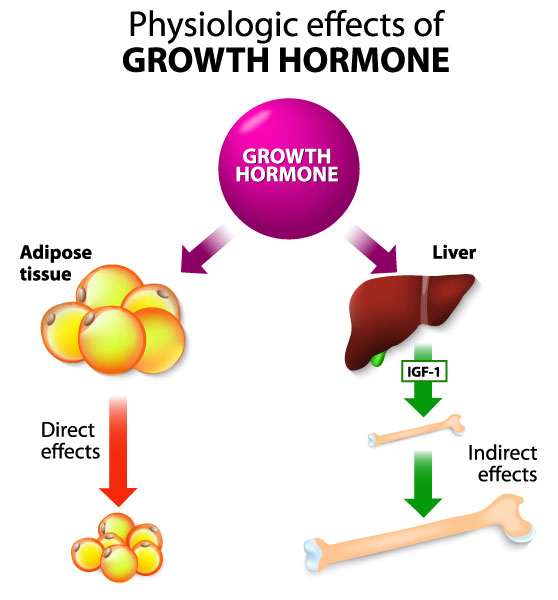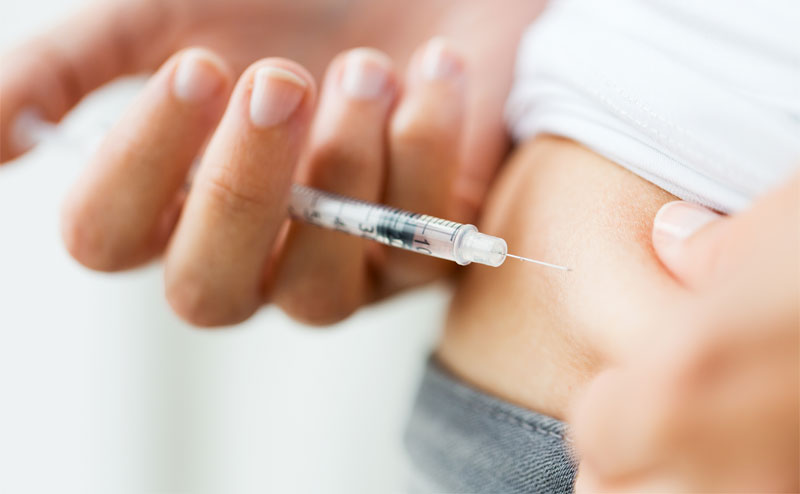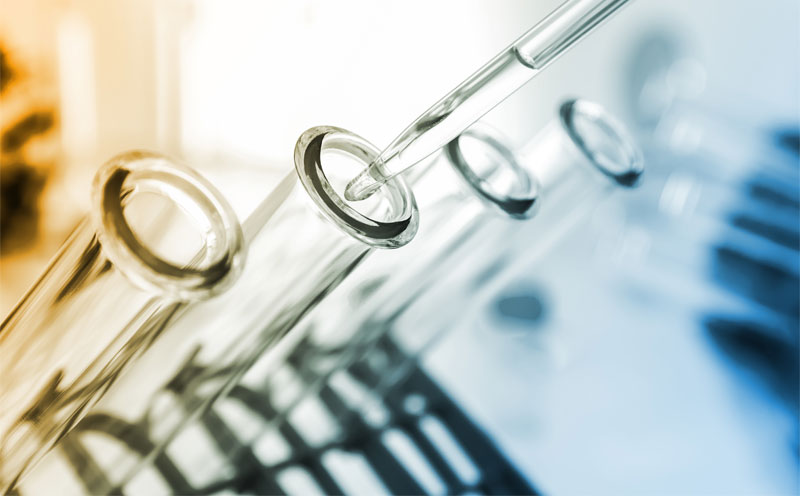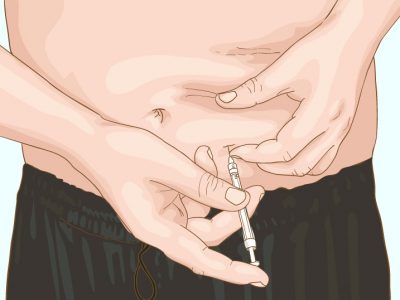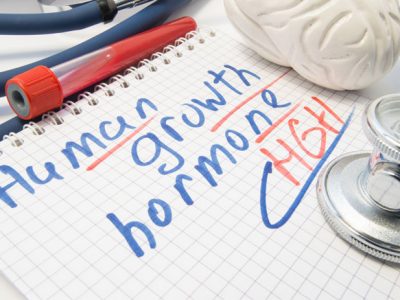- Home
- Growth Hormone
- Growth Hormone
- Growth Hormone Deficiency
- Growth Hormone Therapy
- Growth Hormone Injections
get startedThe Most Effective Hormone Replacement TherapiesGrowth Hormone Deficiencies Can Be Effectively Treated
- Growth hormone maintains muscle and bone health. Growth hormone is vital to a healthy metabolism. It is responsible for helping you to build lean muscle and burn fat more efficiently.
- Growth hormone deficiency occurs when your body does not produce enough HGH.
- Growth hormone deficiency (GHD) can be a concerning condition in both adults and children. However, GHD can be effectively treated with HGH injections.
Growth hormone deficiency (GHD) can be a concerning condition in both adults and children. The good news is that there are treatments available for growth hormone deficiency that can improve quality of life.
Human growth hormone, or HGH, is one of the most important hormones produced by your body. HGH is a peptide hormone produced in the pituitary gland in the brain. The role of Growth hormone is to stimulate growth, cell reproduction, and cell regeneration. It regulates all of the processes that cause us to grow from children, through adolescence, into healthy, strong adults.
Growth hormone is vital to a healthy metabolism. It is responsible for helping you to build lean muscle and burn fat more efficiently, and therefore is instrumental in helping you to avoid so called “metabolic” conditions such as diabetes and insulin resistance. By helping you to maintain a good fat/muscle ratio, and a healthy metabolism, HGH also lowers your risk of heart disease.
In a person with Growth hormone deficiency (GHD), the body’s metabolism begins to decline. Individuals then begin to lose muscle, gain fat, followed by a downward spiral of poor health.
In men, adipose(fat) tends to accumulate primarily in the abdomen whereas, in women the buttocks and thighs can be added to the list.
Growth hormone deficiency occurs when your body does not produce enough HGH. Medical professionals describe GHD as either adult onset GHD, also known as, “age-related growth hormone deficiency,” or childhood GHD often due to genetic causes. The main symptom of childhood GHD is slowed or impaired growth. In addition to small size, other symptoms of childhood growth hormone deficiency include:
- Failure to reach pivotal maturation milestones
- Increased belly fat
- A look of immaturity, looking younger than their physical age
- Failure to lose “baby teeth” on time
A drop in HGH levels significant enough to result in GHD, is invariably related to pituitary malfunction.
There are many disease conditions from injury to cancer that can impair the pituitary gland’s ability to produce enough HGH. Certain genetic abnormalities can also lead to GHD.
Adult onset GHD: There are many disease conditions including; autoimmune diseases, chronic kidney disease, tumors on or near the pituitary gland, prior exposure to radiation treatments, prior head injury, and other conditions.
Symptoms and conditions associated with of HGH deficiency in adults can include:
- Lack of vitality
- Loss of strength/fatigue
- Reduced muscle mass and declining muscle strength
- Weight gain, particularly the “spare tire” of belly fat
- Mood swings
- Weakened immune systems, resulting in increased risk of infection, cancers and other diseases.
- Impaired sleep cycles
- Emotional distress such as anxiety and depression
- Reduced alertness, cognitive difficulties and memory loss
- Flaking and cracking skin
- Impaired hair growth
- Increased cardiovascular events ( heart disease & stroke )
In adults, even when there is no apparent injury to, or disease of, the pituitary gland, individuals can still suffer from growth hormone deficiency. It is natural for your HGH levels to decrease over time (“age-related growth hormone deficiency”). Once you are over the age of 35, growth hormone level tends to drop at a rate of about 2% per year. In some adults that drop is well tolerated, in others over time, they can begin to exhibit the tiredness, fatigue, muscle loss, and any or all of the symptoms of age-related GHD.
The main symptom of childhood GHD is slowed or impaired growth. In addition to small size, other symptoms of childhood growth hormone deficiency include:
- Failure to reach pivotal maturation milestones
- Increased belly fat
- A look of immaturity, looking younger than their physical age
- Failure to lose “baby teeth” on time
- Delayed onset of menses in girls, late development of secondary sexual characteristics in boys
Whether the patient is suffering from growth hormone deficiency as a child, resulting in slow growth, or stunted growth, or age-related GHD, resulting in tiredness, weakness and related symptoms – the best treatment available for GHD is HGH replacement therapy.
What Is the Best Treatment for Growth Hormone Deficiency?
Whether the patient is suffering from growth hormone deficiency as a child, resulting in slow growth, or stunted growth, or age-related GHD, resulting in tiredness, weakness and related symptoms – the best treatment available for GHD is HGH replacement therapy. The goal of HGH replacement therapy is to return your growth hormone levels to where they are right for you optimal health, regardless of your age.
The many “horror stories” out there about HGH being dangerous, or even deadly, mostly derive from the illicit use, or abuse of HGH. If you get your growth hormone therapy from qualified and certified practitioners of HRT, growth hormone replacement therapy is generally safe and free of significant risks.
How Is Growth Hormone Therapy Administered?
Actual growth hormone therapy is only available with a doctor’s prescription and only delivered by a course of growth hormone injections.
HGH injections are administered daily. Patients will be taught to self-inject, and provided with kits, similar to those used by diabetics to take insulin shots. This is usually an easy and well tolerated process.
You will probably have to see your growth hormone doctor about every 6 weeks during the course of your HGH replacement therapy, so that he or she can monitor you condition and progress.
How Do I Know If I Have Growth Hormone Deficiency?
If you have been exhibiting the signs and symptoms of growth hormone deficiency, simply assessing the level of HGH present in your blood, is not enough to determine if you are producing enough HGH. You will be given two very specific tests to determine if you have low HGH, a pituitary simulation test, also known as the IGF-1 test, and another test that is for IGF-BP3.
Your body’s normal reaction to the presence of insulin is to release HGH. In these insulin stimulation tests, a controlled amount of insulin, under a doctor’s careful supervision, is injected into your blood stream. If your body fails to release an adequate amounts if growth hormone in response to the presence of insulin, you will be found to be “growth hormone deficient.”
Please see the section: Blood testing for GHD
Is HGH Therapy Safe?
Prescription HGH injections are not like taking some falsely labeled “HGH powder.” HGH replacement injections are an actual medical procedure. As with any injectable pharmaceutical, HGH therapy has some risks and side effects. However, with proper monitoring and supervision of your treatment by doctors who are skilled and experienced in hormone replacement therapy (HRT), any side effects of HGH are minimized. Some of the most common side effects of growth hormone deficiency treatment have been fluid retention, and pain in the joints. But these, and any discomforts you may experience from growth hormone therapy, can usually be alleviated by adjusting your dosage.
The “horror stories” that are out there about HGH being dangerous, or even deadly, mostly derive from the illicit use, or abuse of HGH. If you get your growth hormone therapy from qualified and certified practitioners of HRT, growth hormone replacement therapy is generally safe and free of significant risks.
Remember, the goal of GHD treatment is to return your HGH level to what is normal for you and the needs of your body. With careful administration and monitoring, HGH replacement therapy is a safe and effective way to bring you back to your best version of you!
The goal of growth hormone therapy is to return your HGH levels to what is normal for you and the needs of your body. With careful administration and monitoring, HGH replacement therapy is a very safe and effective treatment for GHD. Our dedicated team of staff can help every step of the way toward your goal of achieving better health and fitness.
read this next
Sermorelin Not Working
Sermorelin is not the same thing as HGH, and it does not work as quickly to reverse the symptoms of growth hormone deficiency in…read moreWhat You Need to Know About Growth hormone Injections
There are many myths and misunderstandings about human growth hormone, or HGH. Here are some of the facts you need to know about growth…read moreWhat Are The Signs and Symptoms Of Growth Hormone Deficiency?
It is vitally important that you get to know the symptoms of growth hormone deficiency. Human Growth Hormone, or HGH, is manufactured and secreted…read moreHow To Diagnose and Test For Growth Hormone Deficiency In Adults
Adequate amounts of Human Growth Hormone, or HGH, is vital to your health in many ways. Therefore, a diagnosis of growth hormone deficiency (GHD),…read more - Growth Hormone Therapy









